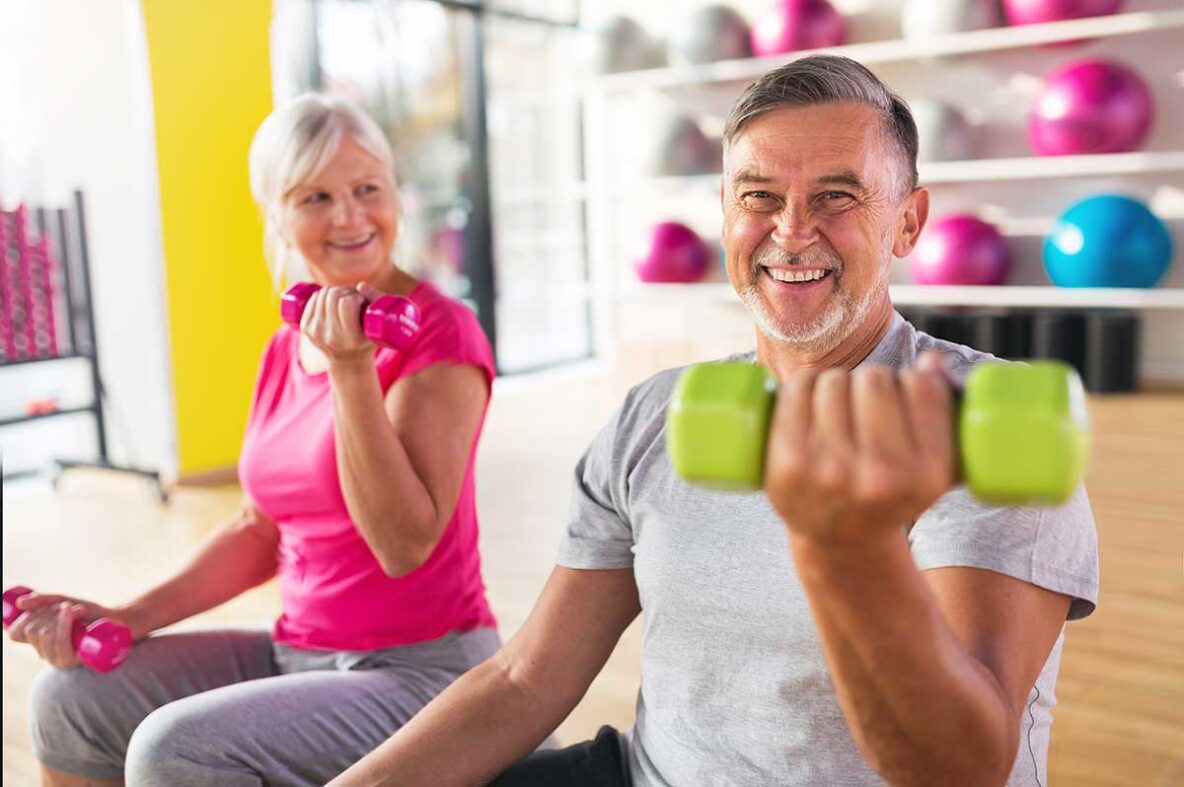If you or an older adult in your life has fallen, you’re not alone. According to the National Institute on Aging, more than one in four people 65 years of age or older falls each year.
Because falls are so common, many people think falls are a normal part of aging. The truth is, they’re not. Most falls can be prevented—and you have the power to reduce your risk.
In this blog, we’ll dispel some of the myths about falling and share ways to protect yourself from falls.
Myth 1: If I avoid certain activities, I won’t fall.
Reality: Some people believe that the best way to prevent falls is to stay at home and limit activity. They avoid things like walking outside or taking fitness classes because they believe that certain activities put them at risk.
Not true. Performing physical activities will actually help you stay independent, as your strength and range of motion benefit from remaining active. Social activities are also good for your overall health.
Myth 2: I’m safe from falls at home and in familiar environments.
Reality: Over half of all falls occur at home. Inspect your home for fall risks. Fix simple but serious hazards such as clutter, throw rugs, and poor lighting. Simple home modifications, such as grab bars in the bathroom, a second handrail on stairs, removing ultra-plush carpet, and non-slip paint on outdoor steps can make a difference. However, making these modifications to your home can be expensive for many people.
Safety is one of the many reasons that senior adults choose to live in senior living communities. Senior living residences are already designed with safety in mind. Plus, the incredible amenities, wide range of activities and vibrant communities are a big perk, too!
Myth 3: Muscle strength and flexibility can’t be regained.
Reality: While senior adults do lose muscle as they age, exercise can help restore and maintain strength and flexibility. It’s never too late to start an exercise program. Even if you’ve been a “couch potato” your whole life, becoming active now will benefit you in many ways, including protecting you from falls.
At Senior Star, our Senior Star Signature Programs like Zumba Gold®, ShapeMaster®, Laughter Yoga and Rock Steady Boxing offer something for everyone. Whether you’re new to exercise or a seasoned pro, you’ll find something you can look forward to and enjoy.
Myth 4: Taking medication doesn’t increase my risk of falling.
Reality: Taking any medication may increase your risk of falling. Medications affect people in many different ways and can sometimes make you dizzy or sleepy. Be careful when starting a new medication. Talk to your health care provider about potential side effects or interactions of your medications.
Myth 5: I don’t need to get my vision checked every year.
Reality: Vision is another key risk factor for falls. Aging is associated with some forms of vision loss that increase the risk of falling and injury.
People with vision problems are more than twice as likely to fall as those without visual impairment. Have your eyes checked at least once a year and update your eyeglasses, if needed.
Myth 6: Using a walker or cane will only make me more dependent.
Reality: Walking aids are very important in helping many older adults maintain or improve their mobility. They can be an excellent tool when used correctly. Meet with your doctor or physical therapist to ensure that your walker or cane is the right fit. They can also instruct you in its safe use.
Myth 7: I want to keep my independence. I don’t need to talk to family members or healthcare providers if I’m concerned about falling.
Reality: Fall prevention is a team effort. Discuss it with your doctor, family, and anyone else who can help.
A fall that results in a serious injury can be a big setback requiring additional care or even rehabilitation. The old adage, “an ounce of prevention is worth a pound of cure,” is true for falls.
Avoiding a fall in the first place is the best way to enjoy your independence.
Contact us to learn more.

